In How To Fix The African American Community
In How To Fix The African American Community I describe how to fix the African American Community in 6 easy steps. You asked. I delivered.
You can support me at https://www.paypal.me/rightleftofcenter
Originally uploaded Sep 16, 2020
109
#fatherlessamerica #strongfatherspowerfulfamilies
From Conservapedia:
African American is a politically correct term some use to describe the ethnic background of Americans with African ancestry. The great majority of African Americans are descended from Africans brought to North America as slaves beginning four centuries ago. Others (like Colin Powell) were twentieth century immigrants from the West Indies or Africa. Some criticize the use of terms such as "African American" or "Mexican American," collectively referred to as "hyphenated Americanism," because the terms "put America second" and emphasize racial differences over common national identity.[1]
The preferred terminology changes constantly. Currently "black" and "African American" are in favor, and "Afro-American" and "Negro" are out of favor. The situation before 1960 was just the reverse. "Colored" was popular until the 1950s, but now is generally out of favor except among some Leftist groups.
The use of the term "African Canadian," a similar politically correct attempt at labeling Canadians of African or Caribbean origin, is largely rejected in favor of the term "Black Canadian."
History
See also Black history.
Blacks were originally brought to America to serve as slaves in southeastern states on large-scale plantations. During the Civil War, all slaves were freed by Abraham Lincoln though the Emancipation Proclamation, the Thirteenth Amendment, and some state actions. During Reconstruction the Freedmen (freed slaves) gained citizenship and civil and political rights, including the right to marry, move about, and keep their wages.
The system of sharecropping instituted after the end of the war left most Freedmen poor, while the Jim Crow policies of racial segregation that were implemented after the end of Reconstruction limited their civic and political rights. Notably, the states that supported these policies were largely governed by members of the Democrat Party.
Blacks left the rural south in two waves, the first around 1915-20, the second coming after World War II when machinery ended the need for large numbers of people to pick cotton by hand. The migrants headed to the large cities of the North and West, and also in the South, moving from very poorly paid farm work to wage labor.
Politics
Blacks tended to support the Republican Party from the 1860s to the 1960s, but few who lived in the South voted—some states even stopped people of African ancestry voting by the use of literacy tests, poll taxes and other measures. The New Deal provided large-scale relief for blacks during the Great Depression. Some black Republican organizations, as in Chicago, switched overnight to the Democrats. This sudden change is often attributed to the leftist sentiments that were growing in the late twentieth century. The 15th Amendment allowed blacks to vote, but despite vigorous enforcement in the South prior to the Voting Rights Act, minority voter registration was still much lower than white voter registration.[2][3] After the Voting Rights Act, black turnout increased substantially. Since 1964, blacks have voted 85% to 95% for Democrat presidential candidates, with an occasional black Republican elected to state office.
Among African Americans, Christianity is very high, and the standard practice since Reconstruction is for black ministers to be community spokespersons, and political power brokers; they often run for office. The great majority of African Americans are Protestants, with their own Baptist, Pentecostal, and Methodist churches. A few are Muslims.[4]
Racial registration and anti-miscegenation laws
In the early 20th century some states, not only in the South, adopted racial registration policies and implemented laws against the mixing of black and white people. These "anti-miscegenation" laws were only finally ended in the federal case Loving v. Virginia, when a mixed race couple successfully challenged all laws against mixed marriage in the states.
Integration vs. separate institutions
Since 1964, most forms of racial discrimination is illegal, and government services and public accommodations have been integrated so that African Americans and non-African Americans can go to school, shop, travel and live with all other Americans. Although de jure segregation has ended, de facto segregation continues in many aspects of American life. Many people have observed that Sunday morning when people are attending church is perhaps the most racially segregated time of the week—because many congregations and denominations are composed primarily of a single race.
-
 3:07
3:07
WMAR
3 years agoDispelling myths about the virus in the African American community
48 -
 2:13
2:13
WXYZ
3 years agoInside Michigan's African American Vote
1403 -
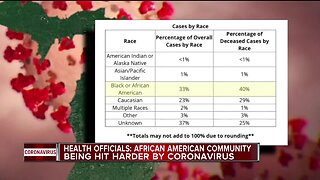 1:39
1:39
WXYZ
4 years agoHealth officials: African American community being hit harder by COVID-19
59 -
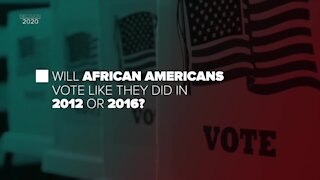 2:20
2:20
WGBA
3 years agoHow the African American vote impacts the election
20 -
 2:08
2:08
ViralHog
5 years ago $0.18 earnedPolice Officers Arrest African American Man
4123 -
 3:30
3:30
KMTV
3 years agoMoving Forward: Midlands African Chamber and the American dream
19 -
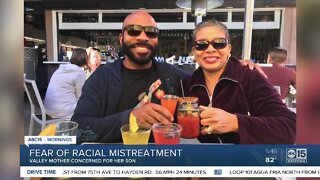 2:47
2:47
KNXV
3 years agoAfrican American mother's perspective on racism, violence against her community of color
2951 -
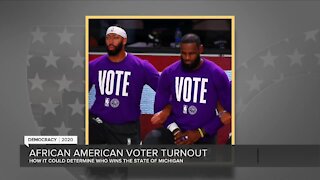 2:09
2:09
WXYZ
3 years agoAfrican American voter turnout could determine who wins Michigan
39 -
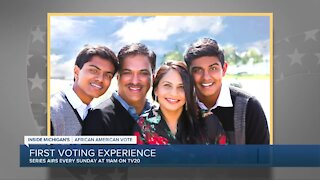 2:16
2:16
WXYZ
3 years agoInside the African American Vote preview: First voting experience
474 -
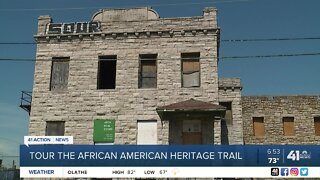 3:49
3:49
KSHB
3 years agoOne Tank Trips: African American Heritage Trail
22